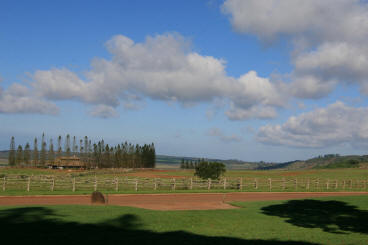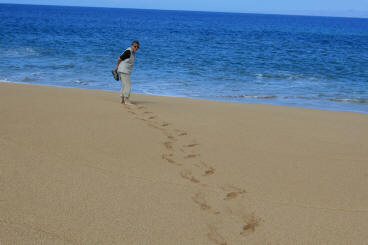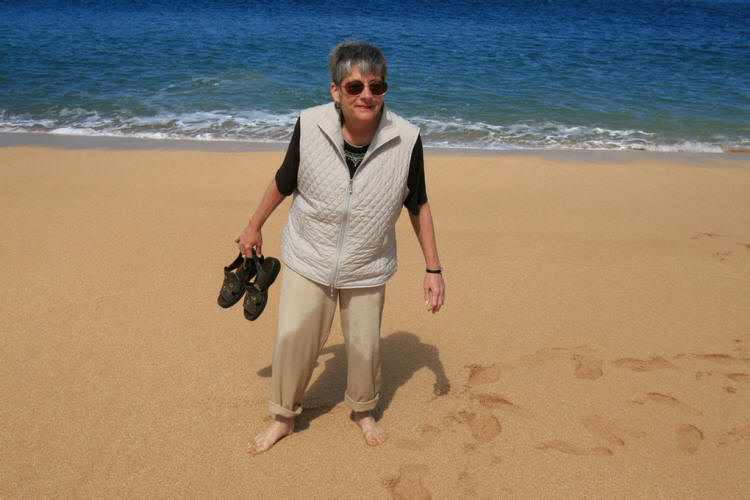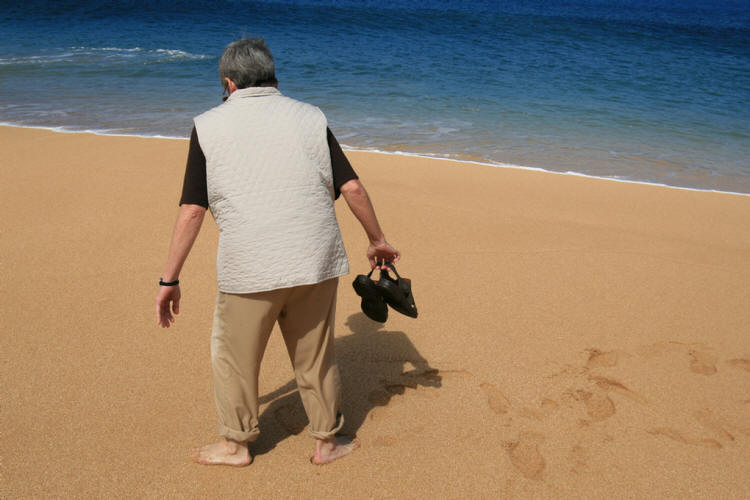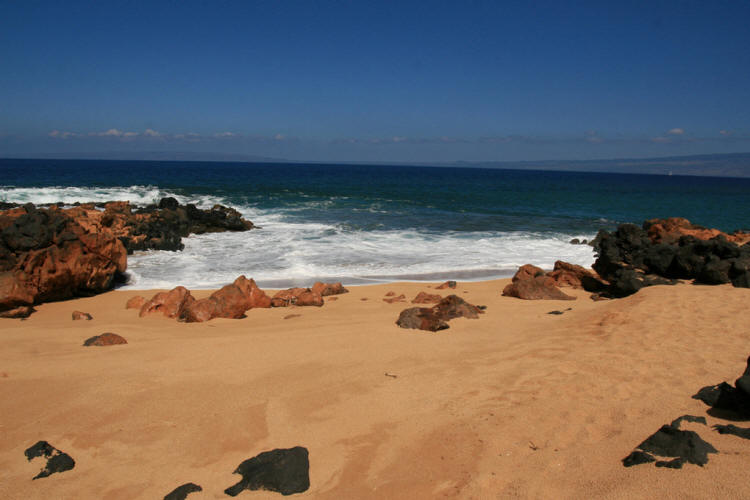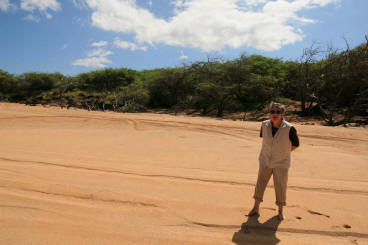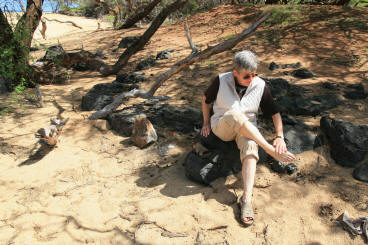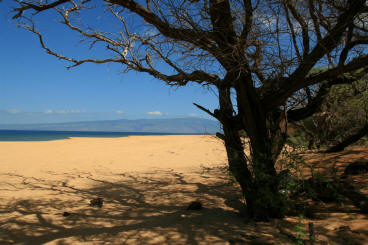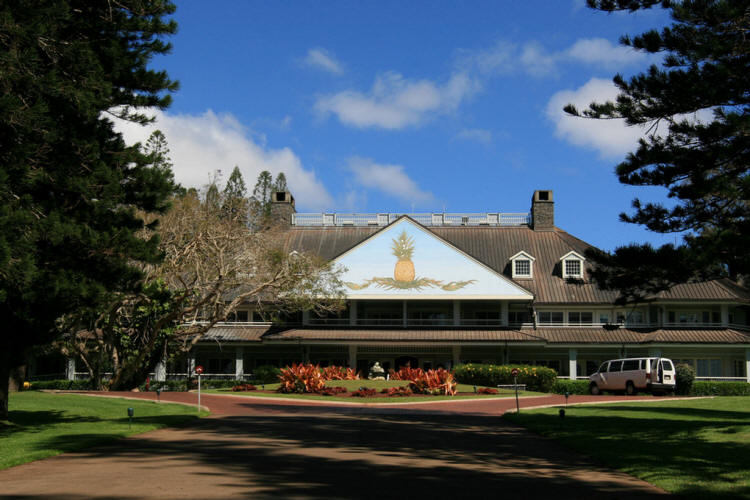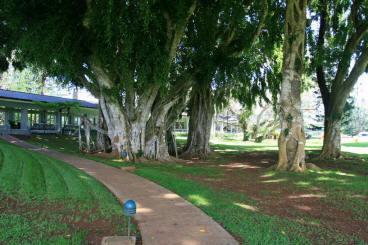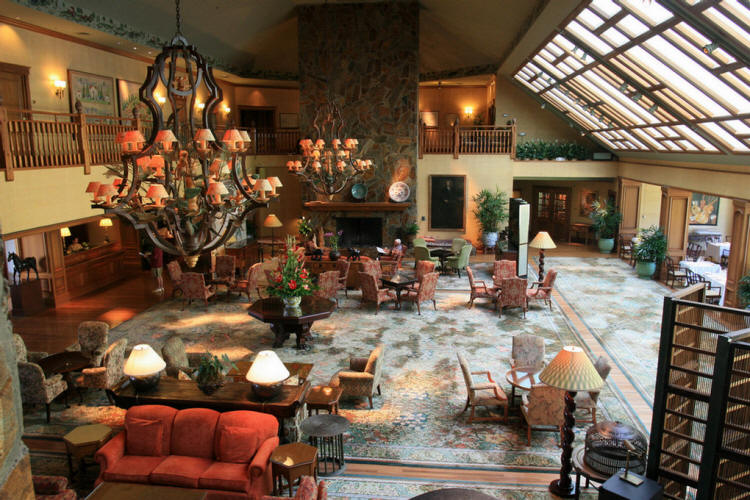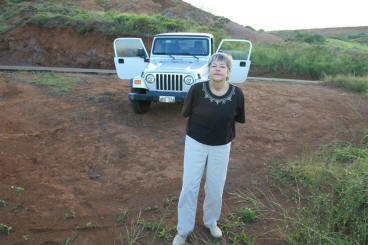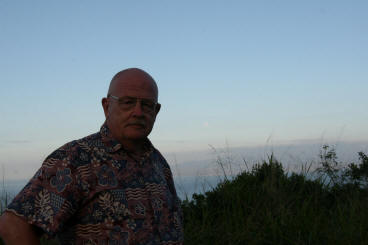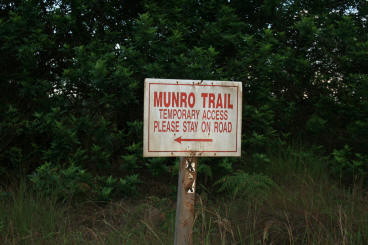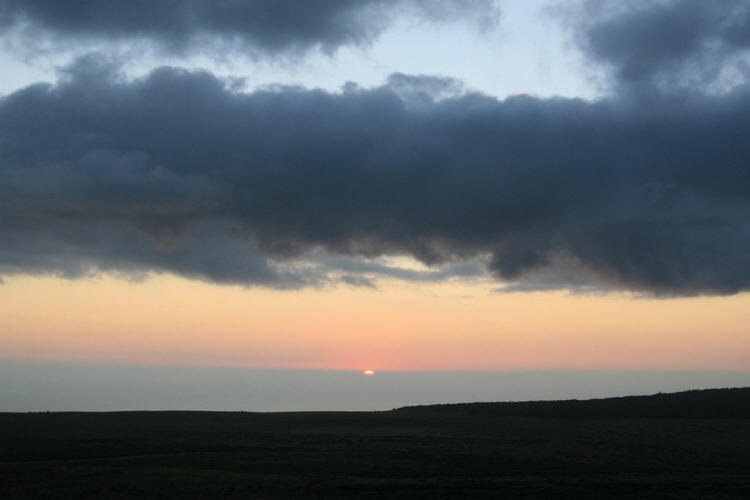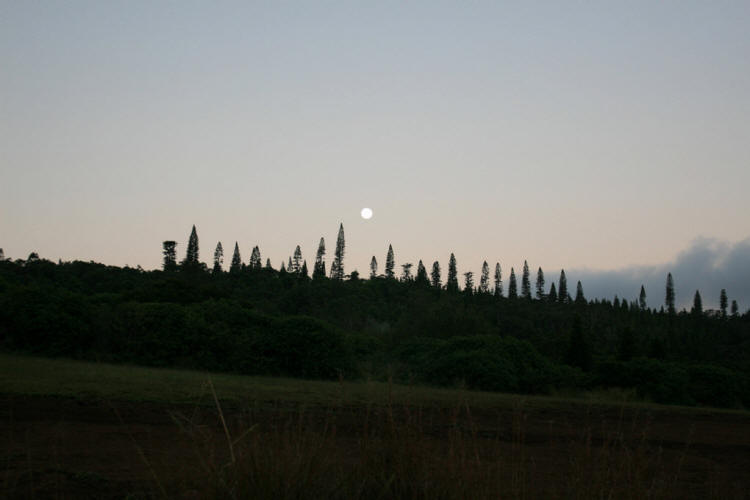| Previous: Lanai Arrival And Day One Activities | Next: Snorkeling Adventure |
Exploring The Island On Day Two
The island is small and only a few miles of road are paved leaving us and our trusty jeep to go exploring the remote beaches!
Decisions Decisions!
Preview Our Destinations On A Virtual Tour
- North Shore Beach
- Polihua Beach - Fun to go walking in the quiet of the shoreline.
- Polihua Beach 2
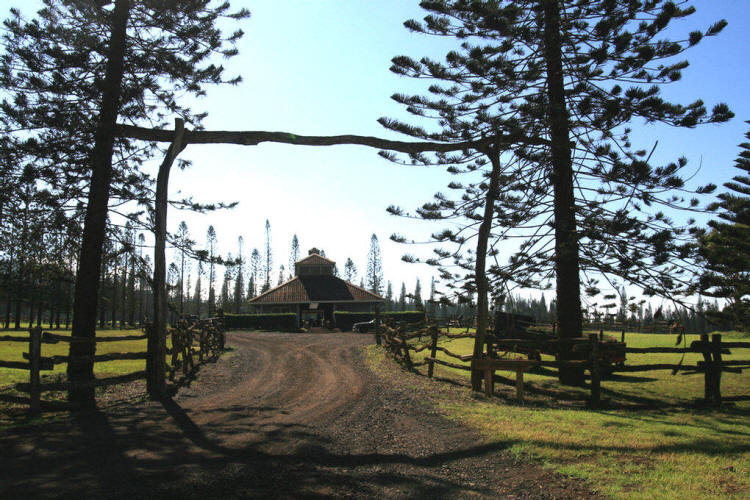
We never took "advantage" of the riding stables
No Civilization After The Lodge Stables!
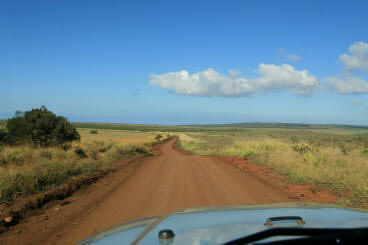
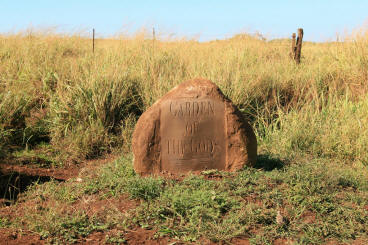
Heading out means down a dusty red road!

The road was "smooth" and provided fantastic views of the island
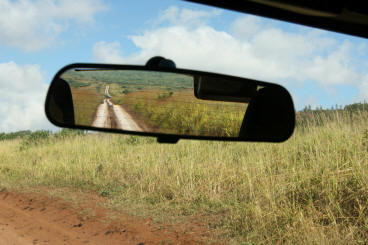

About 15 miles of hard and red road ahead. Watch out for the bumps!/p>
Lanai Is A "Dry Island" With Little Rainfall Thanks To Maui
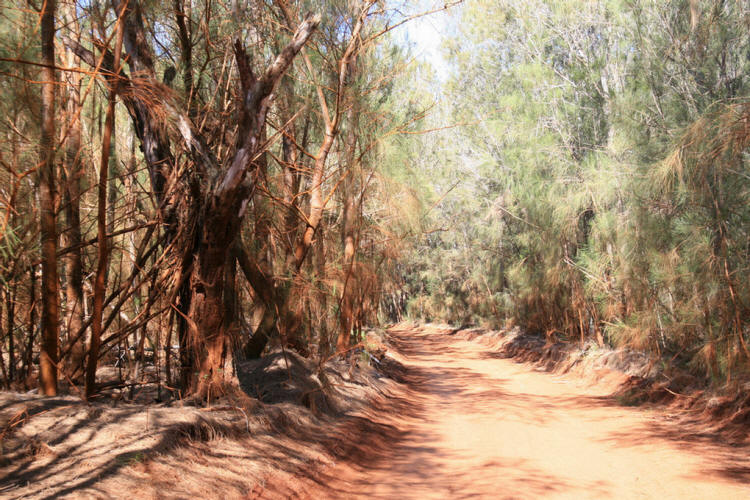
The pine forest was eerie when the wind was blowing through the trees


The local deer and wild animal preserve. Bow and arrow hunting was underway while we visited!
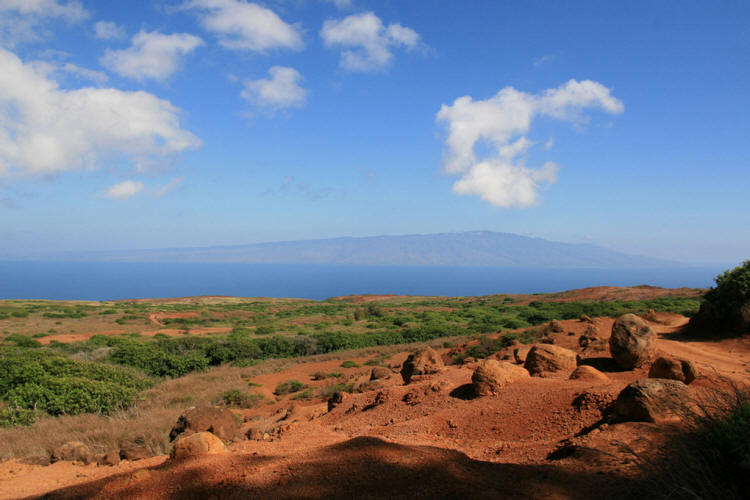
Now we are looking east and seeing Molokai. We are on the northern most point on Lanai.
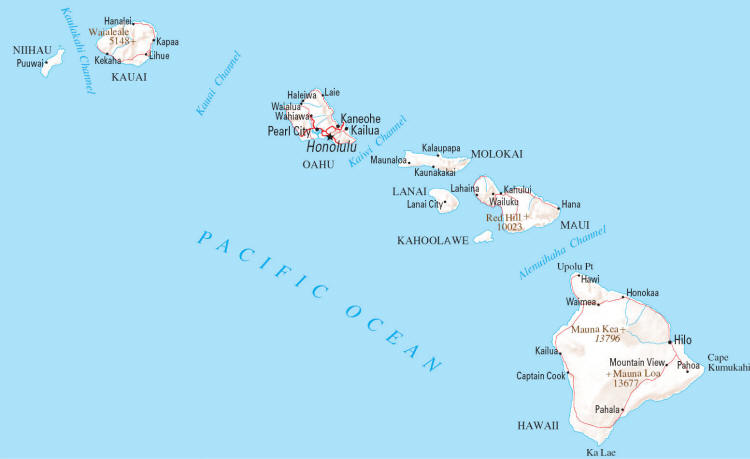
Lanai is surrounded

We Arrive At The Garden Of The Gods

The trusty silver streak is ready to go!

About seven miles north of Lanai City is perhaps Hawaii’s ultimate "rock garden," an awe-inspiring lunar-like setting that’s as shrouded in mystery as it is in stark beauty.
Keahikawelo, also known as Garden of the Gods is a visual wonder uniquely characterized by boulders of varying sizes, shapes and colors. Its appearance is simply unmatched in all the Hawaiian islands, and you won’t have to be a geology buff to appreciate the dramatic formations that litter the landscape.
Science will tell you that these formations are the result of thousands of years of erosion that created pinnacles and buttes in one remote canyon area. Just one look, however, and you’ll wonder whether each rock has been placed for some divine purpose.
One Island legend tells us that the rocks and boulders were dropped from the sky by the gods tending their gardens. Another ancient tale explains that the rocks house the spirits of ancient Hawaiian warriors. And still another legend says that the gods enjoyed creating art, and this spot on the island is where they made their favorite sculptures. They created powerful winds to literally sculpt each rock formation (perhaps explaining why there is no vegetation in the Garden of the Gods).
The best time to view the Garden of the Gods is during the early morning hours, when the sunlight casts eerie shadows against the boulders and bring out the rocks’ most dynamic colors. Bring your camera, but don’t do anything disrespectful like rearranging the rocks (would you tamper with artwork created by the Hawaiian gods?).


After leaving the Garden Of The Gods, we are off to
Polihua Beach
and lonely area with no people!

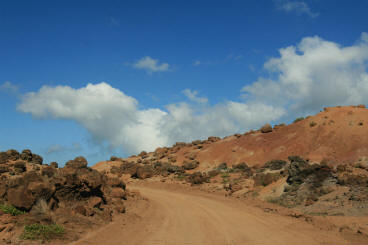
The rock formations are quite interesting
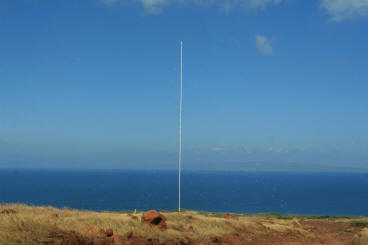

Paul had to check out the antenna... Turned out to be a weather station which was solar powered!
Polihua Beach
Located approximately 11 miles north of Lanai City on North Coast. Accessible by 4-WD vehicles only from the Polihua Trail at the end of Polihua Road. One of the most famous green sea turtle nesting beaches in Hawaii and a good place to watch whales (in season). Over 1-1/2 miles of white sand.
Windswept - susceptible to sand storms and dangerous currents. Water conditions can be extremely hazardous - not safe for swimming. Surfing when water conditions are right for expert surfers only.
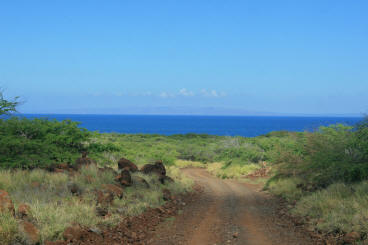

No one has been around here are weeks!
Oops! The Wave Was Faster Than Sue!
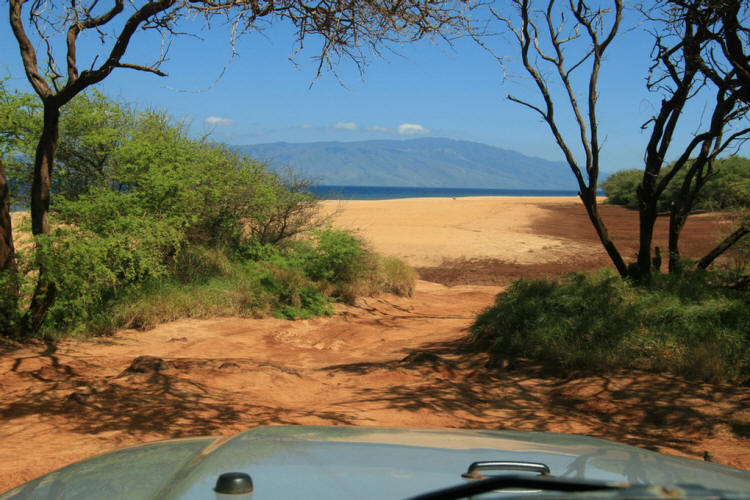
We would slow down and drive up to the beach! Whales everywhere!
A Pleasant Drive
It's a good hour drive back home... Not because of the distance but because of the road providing such views!

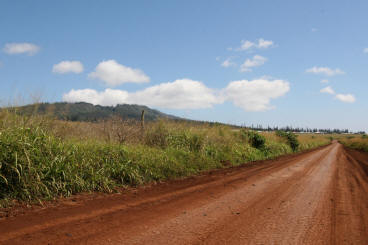
Old pineapple fields are everywhere
Back Home For A Short Rest Before We Go Off Again
Now, Off To Shipwreck Beach (A Part Of The Way)
Although unsafe for swimming, wild and beautiful Shipwreck Beach remains a favorite stop among many visitors to Lanai, "Hawaii’s Most Exclusive Island." Beachcombers come for the brilliant shells and other treasures that wash up on shore. Amateur and professional photographers alike thrill at the magnificent views of neighboring Molokai, which rises across the Kalohi Channel. And the beach’s eight-mile stretch of sand offers a great spot for sunbathing, picnicking, fishing, walking and exploring.
The Kalohi Channel is known for having powerful currents and numerous reefs, and many ships have met their watery demise here—hence, the name "Shipwreck Beach." The first documented shipwreck occurred in 1824 when a British vessel, Alderman Wood, met its fate. Just two years later, an American ship, London, sunk here. The London was said to be carrying a large cargo of gold and silver, and it is uncertain how much was ever recovered.
Perhaps the most famous resident at Shipwreck Beach is the World War II Liberty Ship, whose rusted hulk still clings to a reef near the shore. This was not the result of an accident. After World War II, this vessel was given "residence" as an economical means of disposal. Made of concrete, the ship was one of 22 ferrous-concrete oilers built between 1942 and 1944. None of these vessels were given names.
Located along the northeastern coastline of Lanai, Shipwreck Beach is accessible by 4WD vehicle. From Lanai City, take Highway 44 to the end of the road, then turn left on the dirt road to the parking area near the lighthouse ruins. The beach fronts the ruins and stretches for several miles.

Many horses are kept by the island inhabitants
The Munroe Trail
One of the most interesting drives on Lanai is the Munro Trail. The road is dirt and somewhat rutted in spots but the views make it worth the trip. At the summit of the trail you are at 3,370-foot elevation and can sometimes see 6 islands on a clear day. The trail winds through rain forests and up mountains to the top of Mount Lanaihale and then back down to the Palawai Basin. The one-lane dirt trail is approximately 7 miles long but takes 2-3 hours to drive. There are several lookouts along the way. Three miles into the drive you come to Maunalei Gulch, meaing "mountain lei". The are is so named beacuase of the lei-like wreath of clouds that so often hangs around these mountains. In 1778, Kalaniopuu's invading force from the Big Island laid seige to Lanai. The last stand occured in this valley. Eventually the Lanai warriors were starved out and the invading forces massacred and pillaged the entire island. Look for Hookio Notches carved in the middle ridge of the gulch. This is where Lanai warriors fortified their stronghold.There are several less traveled roads that lead off the main path. Do not stray from the main course due to uncertain road conditions. Also, many hiking trails lead off from Munro Trail. Check for maps detailing these adventures. Tall Cook Pines were planted in the early 1900's along the ridge of the mountains to wick water from the clouds that surround this area daily. The water seeps down the trees into the underground aquaducts providing sufficient freshwater for the island.
When The Sun Drops The Cameras Are Picked Up!
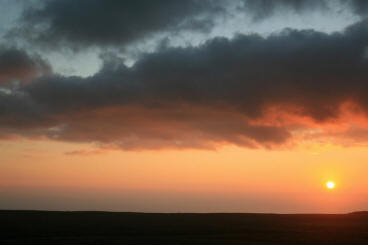

The sunset even made the jeep turn pink

At the Lodge the sun just hangs in the mist of the evening providing a nice photo opportunity!


Look carefully, the sun is the small red dot between the trees!

